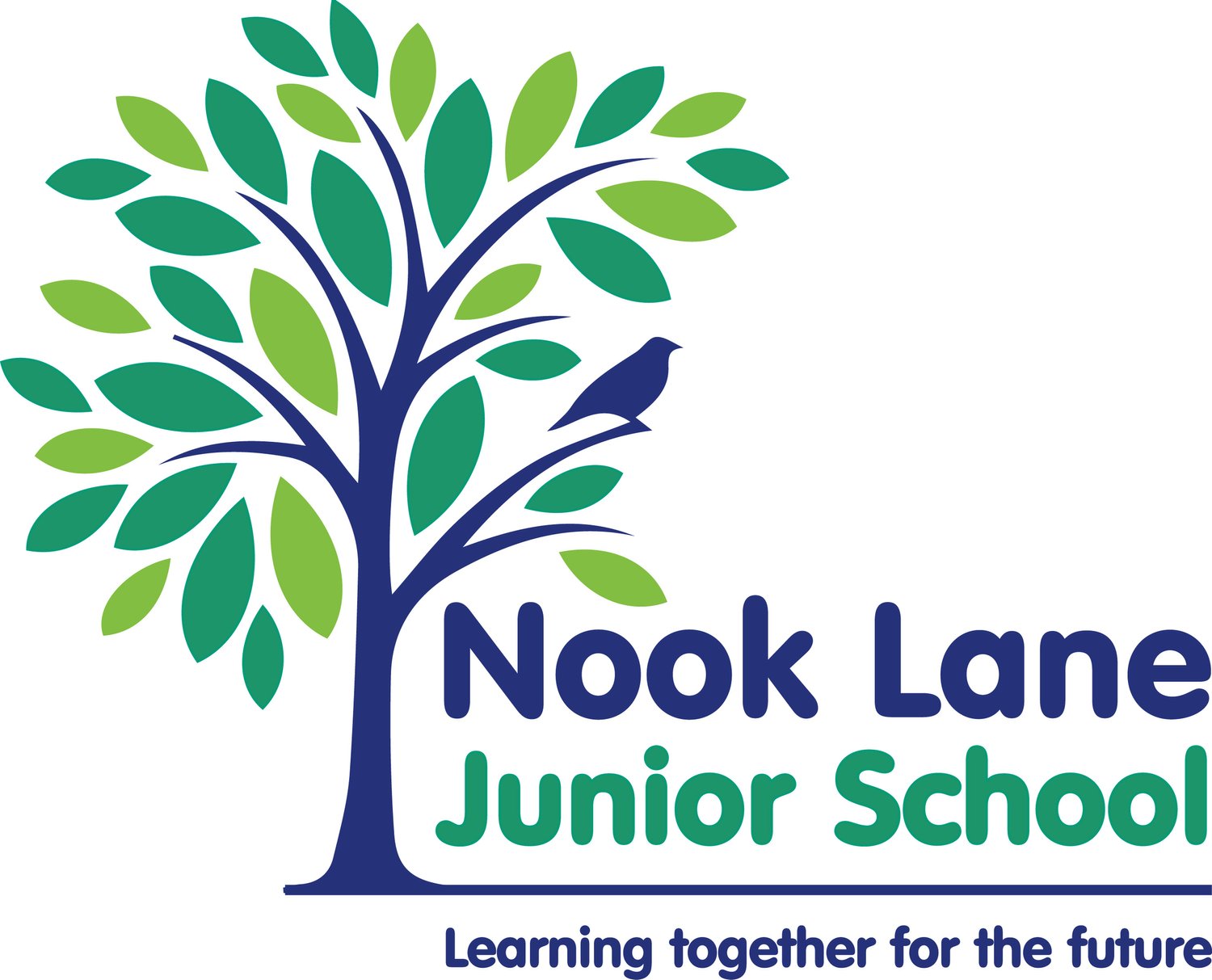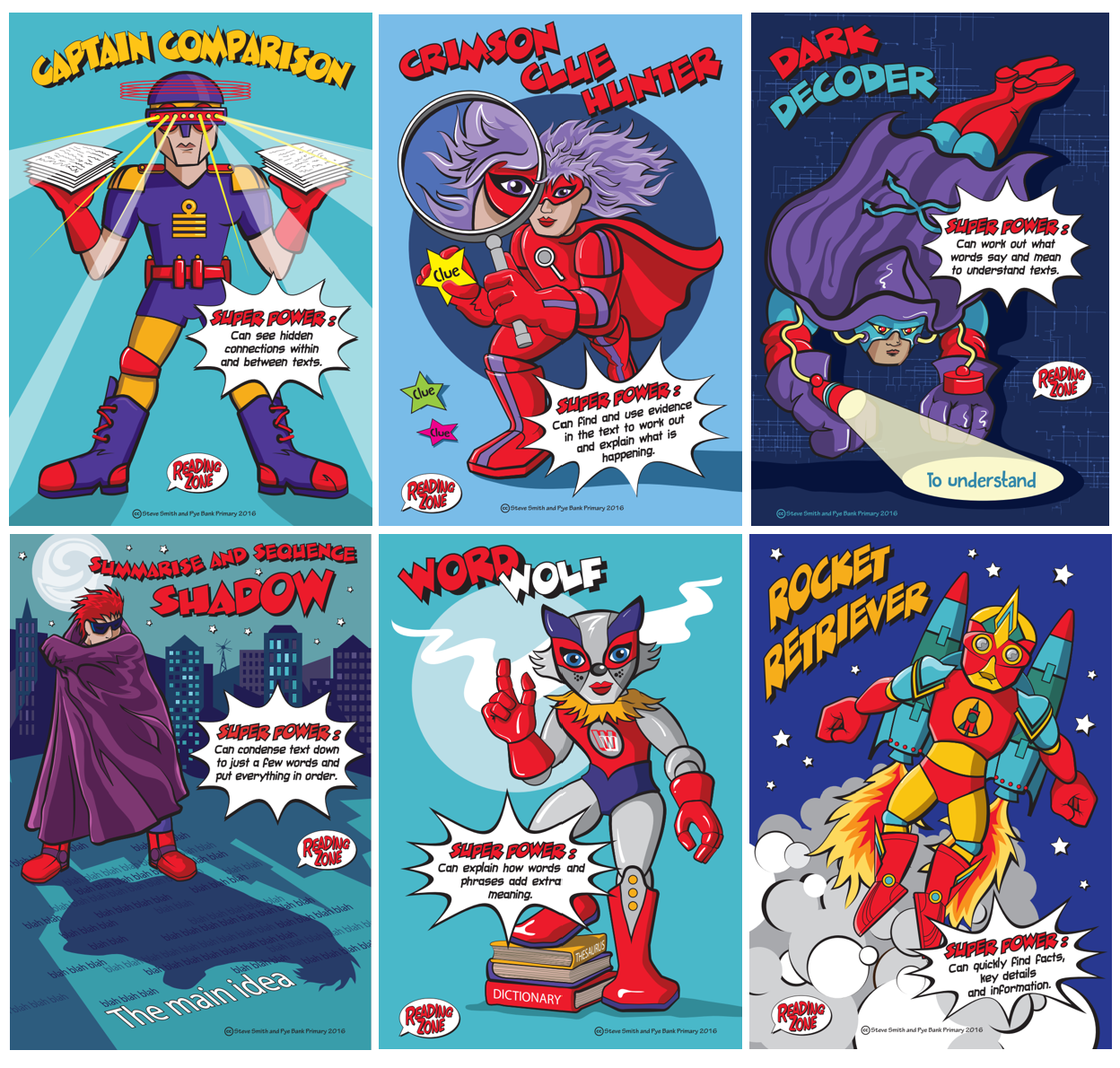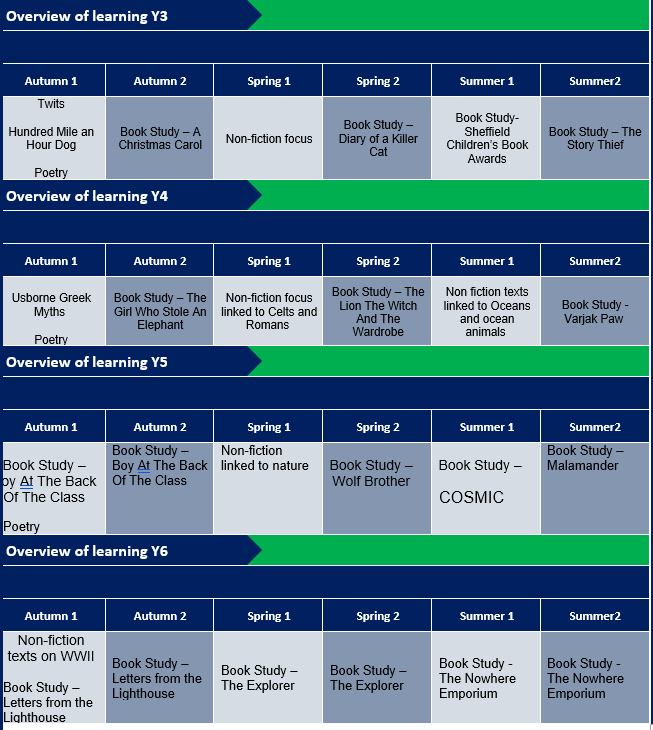
“Today a reader, tomorrow a leader.”
- Margret Fuller
Reading vision
At Nook Lane we view reading as the key which enables children to unlock the rest of the curriculum. We aim to inspire a lifelong love of, and passion for, reading. It is our belief that, for children to achieve their full potential, we need to equip them with the skills needed to read, interpret and understand a range of different texts. By the end of their time at Nook Lane, children will be fluent readers armed with the tools needed to decode unfamiliar vocabulary and with the ability to comprehend any texts that they encounter. Children will be introduced to a wide range of different genres, authors and themes which will provide them with an understanding of different cultures, different ways of life and diverse characters which goes beyond their own experiences, ensuring they leave Nook Lane as responsible and respectful global citizens. It is our aim that children develop a rich and varied vocabulary through the texts they study which will enable them to talk confidently about the books they read and express their ideas, opinions and feelings about them clearly and concisely.
Developing readers
Nook Lane follows a whole class reading model for teaching reading where we offer children the opportunity to get to know a book or a text deeply through a book study approach. Children study full texts as well as high quality extracts and poetry. Reading is used to make our pupils respectful, responsible global citizens as we ensure that, throughout their time at Nook Lane, children are introduced to a diverse range of styles, genres, themes, authors and characters.
We train our children to be experts in the facets needed to be a skilled reader and by the end of their time at Nook Lane, children should use a range of expertise in order to gain a deep understanding of what they are reading such as read aloud, think aloud, questioning, predicting, VIP words, GIST, activating background knowledge, making connections, visualisation.
The Reading Response Squad provides a whole school approach and common language for specific strategies so that they are committed to long-term memory and that children become increasingly skilled at expressing their ideas about, and comprehension of, a text clearly and concisely.
Reading sessions
Reading sessions are delivered four times per week for at least half an hour with sessions initially focused on children having a broad understanding of the text through teacher lead and pupil lead ‘read aloud, think aloud’ activities, activating children’s background knowledge linked to the text and making predictions. This is followed by vocabulary learning which may include finding definitions, explicit teaching of carefully selected tier two and tier three vocabulary, spelling patterns, word families, etymology and word choices. Other activities such as visualisation, summarising and making comparison between and within texts are used to aid the overall comprehension of a text. Finally, children will be given the opportunity to demonstrates their understanding of what they have read through targetted questioning.. Although activities are consistent across school, the sequence of learning varies to suit the text being studied and the age and needs of the children.
Fluency is prioritised through regular, targetted, 1:1 reading, small group fluency activities during whole class reading sessions, whole class fluency activities in whole class reading sessions and progression through the Read, Write Inc Phonics program for targetted children.
World Book Day!
Developing a passion for reading
High-quality texts (including a range of stories, non-fiction, poetry and plays) are selected for book studies, class reading books, for class libraries and to ignite learning across the curriculum. The Nook Lane Reading Spine provides a list of recommended age-appropriate texts for children in each year group which is progressive in terms of challenge, content and theme. Within the spine there is a progressive list of books that are selected for book study units and for class novels. Books are chosen based on their ability to develop children’s vocabulary; improve comprehension skills; provide children with a deeper understanding of different cultures, ways of life and characters beyond their own experience; and to inspire and promote a love of reading. It is regularly reviewed in consultation between staff and the English lead to ensure it is up to date with texts of the highest quality and is responsive to the needs of each cohort of children. Each class has dedicated ‘Reading for Pleasure’ time each day where staff share a book from the Nook Lane Reading Spine with their class. This time encourages informal book talk between staff and pupils and promotes a love of reading. Staff are encouraged to make book recommendations at the beginning of each PDM with the aim of all staff having an excellent knowledge of children’s texts.
We foster a passion for reading through whole school reading events such as World Book Day, Bake for Books competitions, Book Fairs, visits to the local library and participation in the Sheffield Children’s Book Awards as well as regularly reviewing and adapting the books selected as book study texts and class novels to ensure children are exposed to texts of the highest quality which ignite curiosity, engage and inspire.
We create a reading rich environment throughout school through the use of displays and inviting reading corners in every classroom alongside class novels, dedicated reading for pleasure time, holding lunchtime book clubs and whole school reading assemblies. Each classroom has its own class library which includes carefully selected texts from the Nook Lane Reading Spine. Books are organised by genre, theme and author ensuring children are not overwhelmed by choice and to enable teachers to make targeted recommendations and engage in informal book talk with children. The whole school library, managed by Nook Lane children, has a high profile providing a quality range of diverse reading materials, including book banded, non-fiction, picture book and shorter read sections, catering for all tastes and abilities. Each classroom has a display of recommended reads for the relevant year group taken from the Nook Lane Reading Spine and staff choices. Staff recommendations are on display throughout school and the whole school library displays recommendations from children as well as recommendations based on certain books, themes and authors.
Creating a reading partnership
Children across school select a book from the Nook Lane Reading Spine at their level from the Reading Spine section of the whole school library and a book to read for pleasure from either their class library or the whole school library (see Nook Lane Reading at Home – Information for Parents document for more detail). Children are expected to read their Reading Spine book at least three times per week at home or school with an adult to ensure they are regularly practising their reading fluency. The book they choose to read for pleasure ensures that children continue to be engaged and passionate about reading. Children select books in conjunction with their teachers to encourage book recommendations and informal book talk. Those children who are taking part in our phonics programme will have a phonically decodable book to read to ensure they are practising the phonemes and graphemes they are being taught. Children are given the opportunity to change their books regularly. We create a learning partnership for reading between home and school through the use of Reading Records and celebrating home reading by logging home reads on class displays, recognising those who have read regularly. Staff are able to monitor the books their children are reading through careful monitoring of their Reading Records. Regular fluency assessments are carried out with all children to ensure that children are reading books from the correct book band.
Early Reading and Phonics
Children at Nook Lane who have not passed the Phonics Check in KS1 or who have significant gaps in their phonics acquisition, will take part in our Read Write Inc Phonics programme at least four times per week. Children are assessed using the Read Write Inc assessment sheets and their areas of need identified from this. Children are then place in small groups based on their ability. Groupings are reviewed regularly and adjustments made if needed. Lessons are progressive and are planned and taught in line with the Read Write Inc scheme. Follow the link below for further information about the Read Write Inc Phonics scheme and detail on how to support phonics learning at home.
Overviews of learning
Leadership
If you have any questions about our science curriculum, please contact Mr Cornelius, our English leader.









